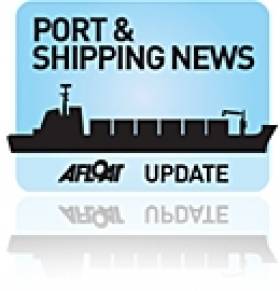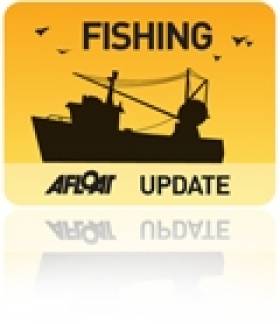Displaying items by tag: Department of Agriculture
Department of Agriculture Urged to Revoke Licence of Irish-Libyan Livestock-Carrier
#CattleCarrier- Express I, the first serving Irish-Libyan livestock-carrier for nearly two decades as previously reported on Afloat.ie a year ago, is currently detained by the UK's Maritime Coastguard Agency (MCA), leading to calls to the Department of Agriculture to revoke the licence of the 7,089 tonnes vessel.
According to yesterday's Irish Times, the ship had been detained by the MCA in Cornwall for safety reasons after its engine failed earlier this month.
Express 1 was bound for Ireland from Germany when it got into difficulty during a gale off the Cornish coast and it was towed into the port of Fowey. For more about this story click here.
Ireland Opposes Transfer of Fish Quotas to Norway
Under the EU/Norway Fisheries Agreement each year Norway and the Community swap fishing opportunities in each others waters. However, this has resulted in the EU giving fish stocks off the west coast of Ireland to Norway in exchange for Norwegian cod. Minister Connick advised his fellow Ministers of the Commissions commitment from last November "to ensure that the costs and benefits for individual Member States of the annual arrangements with Norway should be as balanced as possible".
Minister Connick said "Ireland has continually opposed what has to date been an unfair and inequitable process which results in a Member State, like Ireland which does not benefit, paying for the fishing opportunities of other Member States".
The Minister added "I want to make it crystal clear that Ireland will totally oppose any moves to include the stocks that the Irish fleet fish in the waters off the west coast such as horse mackerel and mackerel in the balance".
The Minister then re-iterated Irelands long held request for a radical re-look at the way the swaps are achieved. He said "It is very clear that there will be a major problem balancing any EU/Norway agreement this year and Ireland calls on the Commission to bring forward a new framework whereby, Member States who want to avail of the Cod on offer can contribute to a communal EU pool for exchange with Norway. In this way those Member States who want the Cod can avail of it but not to the detriment of Member States who do not benefit".
On a side topic the Minister referred to the ongoing negotiations between the EU, Norway, the Faroe Islands and Iceland on arrangements for the management of the mackerel stock which is so important economically to Ireland. The Minister restated Ireland's support of the Commissions efforts to bring about an agreement but not at any cost. The Minister said " It is in all our interests that the level of fishing on the mackerel stock is reduced and that Iceland and the Faroe islands enter into a four party coastal state arrangement for it's management" He went on to say that "Any final share out of the mackerel resource must be fair and proportionate".































































